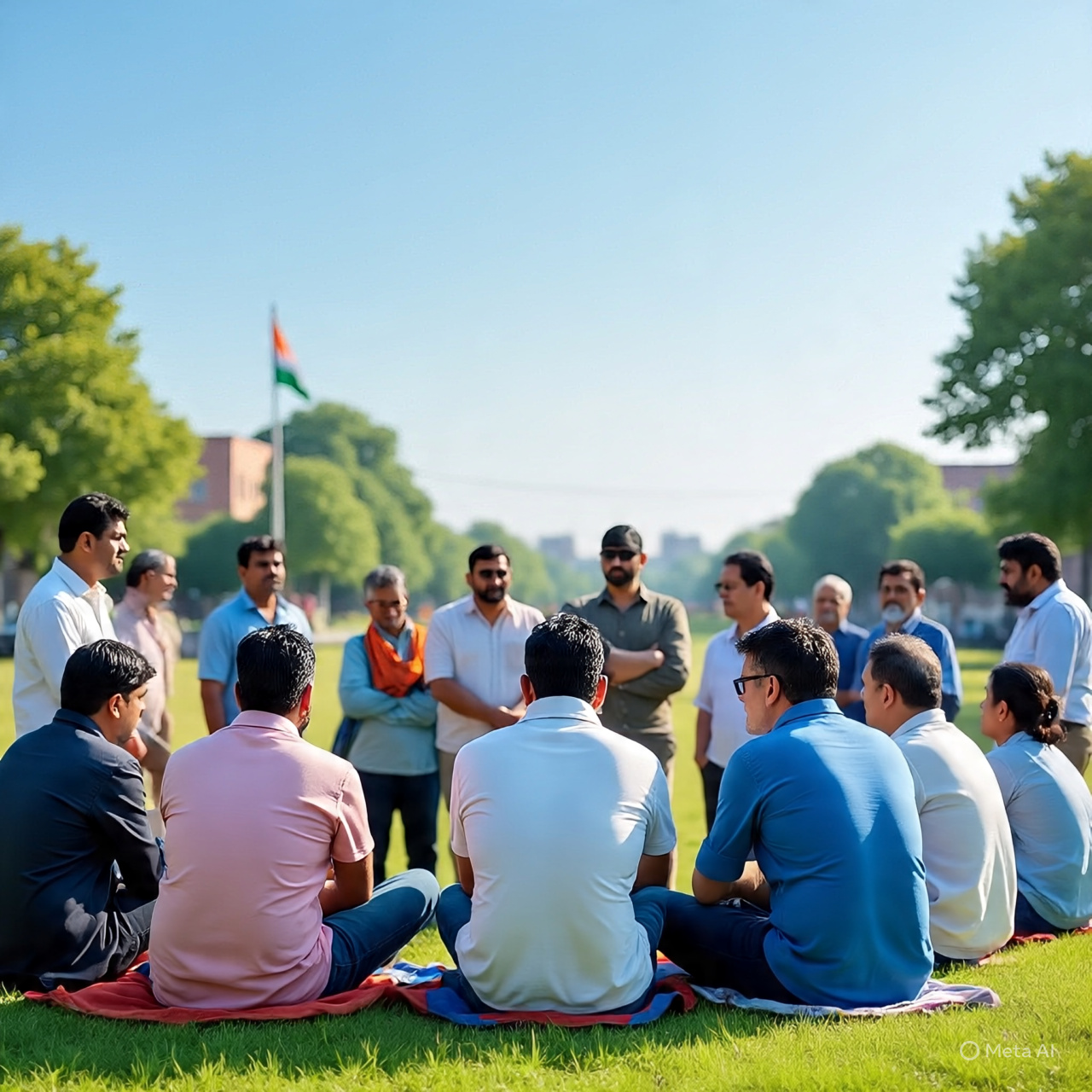
"Yeh daag daag ujala, yeh shabgazeeda seher,
Woh intezar tha jiska, yeh woh seher to nahin."
These famous lines from Faiz Ahmed Faiz’s poem Subah-e-Azadi describe the morning after India and Pakistan gained independence in 1947. While the world celebrated freedom, Faiz saw the deep pain and loss hidden behind it—dead bodies, bloodshed, and broken hopes. His poem, though written for a different time, still rings true in today's India when we talk about democracy and its ongoing crisis.
The Real Meaning of Democracy
Democracy does not only mean holding regular elections. A healthy democracy also needs strong opposition, public participation, fair institutions, and responsible leadership. In India, elections are massive festivals. Thousands gather at rallies in extreme heat to hear speeches filled with promises, but very few of these promises are ever fulfilled. In such an environment, democracy becomes more about appearances than action.
A democracy cannot survive if people are not educated and informed. When India became independent in 1947, only 16% of its population was literate. As of 2022, literacy stands at 77%. Yet, this does not guarantee critical thinking. Reports say that 69% of students in Grade 8 are unable to read simple texts. This means a large section of young voters cannot fully understand election manifestos or compare policy plans.
Religion and Nationalism: A Blurry Line
Throughout history, religion has often been used by rulers to control their people. Even in modern India, religion plays a major role in politics. Though our Constitution says India is a secular nation, many leaders use religious emotions to gain political advantage. Nationalism and religion are mixed in a way that makes it hard to tell where one ends and the other begins. People are encouraged to support leaders not based on ideas or performance, but on identity and faith.
The Unemployment Problem
One of the biggest challenges facing Indian democracy today is unemployment. Parakala Prabhakar, the husband of the current Finance Minister, wrote in his book The Crooked Timber of New India that nearly 24% of India’s working population is jobless. He even compared this figure with countries like Syria and Lebanon, which are dealing with major crises. He also accused the government of hiding unemployment data, which should be a major concern for any voter.
Many middle-aged Indians, instead of finding proper jobs, are being pushed into starting small businesses. While the number of start-ups in India has grown, the success rate is low. Without support or funding, many of these ventures fail. This shows that economic opportunities are shrinking, and people are left to fend for themselves.
Women and Political Apathy
Another serious issue is the lack of concern for women’s safety and dignity. The Delhi High Court stated that there was strong evidence against Brij Bhushan Sharan Singh, the former Wrestling Federation of India chief, who faced sexual harassment charges. Yet, his son was given a ticket by the ruling BJP to contest elections from Kaiserganj, a key constituency.
In another shocking incident, a video involving Prajwal Revanna, a leader from Karnataka, surfaced. Despite serious allegations, the BJP formed an alliance with his party. This sends a troubling message about how women’s issues are treated in Indian politics. Ironically, more women vote in elections than men, but their concerns remain sidelined.
Is the System Really Working?
The Election Commission continues to conduct elections in a peaceful and organized way. But democracy is not just about holding elections. It is about what happens in between—how policies are made, how citizens are treated, and how leaders are held accountable. If the system supports people with criminal charges or ignores major issues like unemployment and women's safety, then the democratic foundation starts to crack.
Insightful Thoughts
India’s democracy is known as the largest in the world. But size alone is not enough. For a democracy to truly succeed, it must empower its people with education, economic security, and equal rights. Today, we see elections happening, but many feel that real power still lies with a few. The voice of the common citizen is often lost in noise.
The poem by Faiz reminds us that simply reaching the morning of independence is not enough. What matters is whether that morning brings real light or just a different kind of darkness. As voters and future leaders, it is important to ask the hard questions and demand honest answers. Only then can democracy live up to its promise.





















